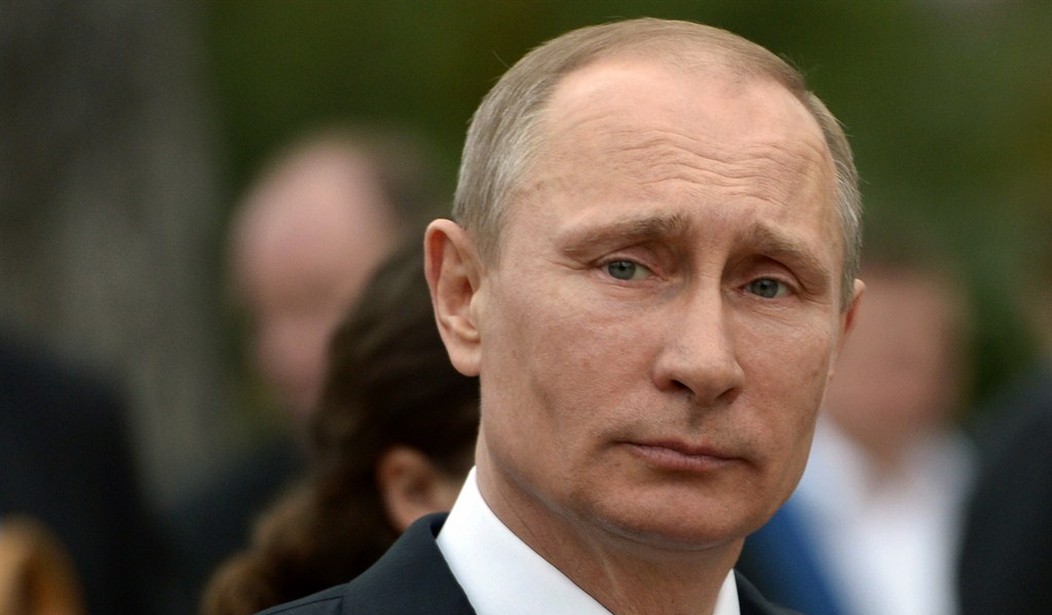For those investors who have grown used to the relatively minor geo-political crises of the past few years, the developing situation in the Ukraine and the Crimea must come as an unexpected communiqué from the early 20th Century.There can be little doubt that the drama will impact financial markets.
While President Obama is doing his best to invert Teddy Roosevelt's "speak softly and carry a big stick" approach to foreign policy, the real issue is how Crimea's proposed secession from Ukraine will lay bare the opacity of international law with respect to issues of sovereignty. Recently, President Obama said, "Under international law, force can only be used in self-defense or by a decision of the U.N. Security Council. ..." But Obama considered using preemptive force in Syria without U.N. approval. Laying aside U.S. adventurism in the Middle East over the past 20 years, in 1998 President Clinton intervened militarily when Kosovo attempted to separate from Serbia.
Although the stakes are far lower, in many ways the current situation on the Black Sea parallels the Cuban Missile Crisis of 1962. Only this time, the roles of each player are reversed.
The threat posed by Russian missiles in Cuba was acute and targeted at America's vital interests. President Kennedy simply could not accept a Russian victory, even at the cost of all-out war. Popular and military support for a tough line against the Soviets, both at home and abroad, allowed Kennedy to go "all-in" to force the Russians to ultimately back down.
This time, it is Russia that has by far the most at stake. The threat to Russia's key warm water naval base in the Crimea, and the potential for an expansion of NATO into its traditional sphere of influence is acute. President Putin cannot accept defeat, even at the risk of war. And like Kennedy, he enjoys the support of his military and his people. Despite the relatively weaker economic hand being played by Mr. Putin, do not expect him to fold.
Recommended
From my perspective, Putin may see six major geo-political weaknesses in the U.S. position. First, he recognizes that the U.S. military and the U.S. public have grown weary of ill-advised foreign interventions. Second, Russia's close trade and energy connections to Western Europe are causing dissension among NATO allies at the prospect of a Continental conflict. The potential for Putin to drive a wedge between the U.S. and wavering EU allies is a risk that Washington must consider.
Third, Putin is acutely aware that a "victory" of Ukranian interests at the expense of Moscow will further weaken Russia's ability to maintain the allegiance of the remaining scraps of its old Soviet empire.
Fourth, Putin knows that Obama needs Russian support over key U.S. initiatives in Iran, Syria and North Korea. Further confrontation of the Crimea may come at a very high price to other interests that are much more vital to Washington.
Fifth, Putin knows that the United States does not wish to see Russia revert to a closer relationship with China, just as China expands her maritime and territorial interests in the Pacific. It is no accident that Beijing has been eerily silent with respect to Russian policy in Europe. Putin knows that oil rich Middle Eastern rulers feel deserted by the U.S. over its proposed nuclear deal with Iran and are looking for new 'protective' allies. It is a power vacuum that China and Russia would be glad to fill.
For its part, Washington must be conscious of the possibility of Russia striking back at the U.S. economically through disruptive sales of its $138 billion war chest of Treasury bonds. Such a move could trigger a financial panic in the West, especially if the moves could be coordinated with Russian allies.
It has been suggested that President Obama and Secretary of State John Kerry are looking to offer Putin a 'face-saving off-ramp' similar to the one that Kennedy made to Kruschev in 1962 (cancelling a planned deployment of medium range NATO missiles in Turkey in return for a Russian stand down in Cuba). However, for the reasons outlined above, Putin must have a strong instinct that Obama will not go to the mat over Crimea. As a result, he may not accept anything that fails to keep the Crimea firmly under Russian control.
However, the bigger issue involves the stand-off between Russia and western Ukraine. With armed soldiers and civilians facing each other, the local situation remains tense. Given the lack of discipline in newly formed units, the possibility of accidental aggression in the heart of central Europe is real.
Risk-taking investors may be wise to gear their portfolios towards a continuing risk premium in energy and precious metals, while maintaining a well-diversified portfolio. More prudent investors anxious for capital preservation may wish to hold back and heed Nathan Rothschild's advice to "buy on the sound of gunfire".
John Browne is a Senior Economic Consultant to Euro Pacific Capital. Opinions expressed are those of the writer, and may or may not reflect those held by Euro Pacific Capital, or its CEO, Peter Schiff.
Subscribe to Euro Pacific's Weekly Digest: Receive all commentaries by Peter Schiff, John Browne, and other Euro Pacific commentators delivered to your inbox every Monday!
Order a copy of Peter Schiff's updated illustrated economic parable he co-wrote with his brother Andrew, How an Economy Grows and Why It Crashes - Collector's Edition, and save yourself 32%!

























Join the conversation as a VIP Member